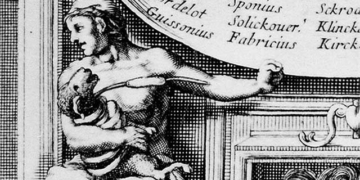In the feudal era, eunuchs served as the closest aides to the emperor and the royal family within the palace. Eunuchs were responsible for attending to the emperor’s meals, sleep, and all aspects of his daily life.
However, their role was not limited to that; eunuchs also held a significant responsibility in conveying the emperor’s edicts. Interestingly, many eunuchs in ancient times were often illiterate. So, how did they manage to read the emperor’s edicts?
Were Eunuchs Generally Illiterate?
In ancient times, not all men in the capital were referred to as eunuchs. The position of eunuch emerged during the Ming Dynasty. Although there were not many eunuchs at this time, some held considerable power and influence. Furthermore, being a eunuch was not a formal official position that anyone could easily attain. The highest rank among eunuchs was Chief Fourth Rank.

Most eunuchs in ancient times were illiterate. (Illustrative image).
Although considered a formal position in the palace, in essence, most eunuchs came from humble backgrounds. These individuals accepted castration to enter the palace, seeking a life of comfort and security.
Moreover, during the Ming Dynasty, Zhu Yuanzhang, concerned about eunuchs wielding political power, imposed strict regulations on them. They were prohibited from studying or participating in any political activities. This is one of the main reasons why eunuchs in ancient times were often illiterate.
How Eunuchs Managed to Read Edicts
Eunuchs serving the emperor, who was the head of state, were always involved in important matters, making illiteracy a significant inconvenience. In fact, the portrayal of eunuchs reading edicts in historical dramas reflects a reality where some eunuchs could read. The reasons why illiterate eunuchs could still convey the emperor’s edicts are as follows.
First, the eunuchs assigned to read the edicts needed to have at least some literacy skills. While few eunuchs were literate in ancient times, those who were literate were assigned to read important edicts from the emperor.
Second, if it was a command or directive from the emperor regarding personal matters, it would be conveyed directly to the eunuchs to ensure confidentiality and prevent leaks. Additionally, since these eunuchs had served the emperor for a long time, they understood his intentions well. Therefore, sometimes the emperor’s directives did not require extensive writing, allowing illiterate eunuchs to communicate effectively.
Third, typically, for edicts addressing significant national events, high-ranking officials in the court would handle and convey them. Thus, eunuchs were not tasked with reading overly complex edicts that exceeded their reading capabilities.

Eunuchs assigned to read simple edicts.
It can be said that reading edicts was one of the challenging tasks for eunuchs in ancient times. However, in reality, they were often assigned to read simpler edicts, such as addressing minor issues within the royal family or matters in the inner palace.





















































